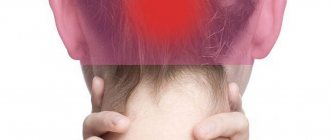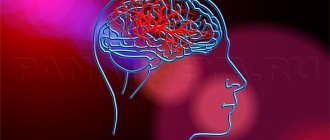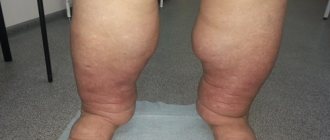Home care for people with dementia
Caring for older people with dementia is based on the constant presence of a caregiver next to the patient. Considering that a loved one is losing most life skills, the support of a caregiver is required throughout the day in all activities.
Care for mild dementia
The patient is helped to perform morning hygiene procedures, get dressed, and get himself in order. Food is prepared for him and he is fed 5 times a day. Correlate diet and medication schedule. Physiological functions are monitored. If the elderly person does not maintain control of the toilet, a diaper is put on him and changed when he is full.
If motor skills are preserved, the ward is taken for a walk. Fresh air stimulates the functioning of the whole body, filling the lungs with oxygen.
It is advisable to conduct classes on the development of cognitive abilities in the first half of the day. At this time, the brain is more active. The materials used for classes are:
- Crosswords;
- Board games;
- collections of exercises.
Physical exercise is also beneficial for the patient. It is recommended to do gymnastics in the morning, breathing exercises, and accustom the ward to Nordic walking.
Treatment of the disease should be under the supervision of a physician. Periodically, a psychiatrist is called to the patient’s home so that the doctor can assess the elderly person’s condition and make timely adjustments to the treatment regimen.
Care for severe dementia
When a patient with dementia loses the ability to move, it is necessary to care for him as for a bedridden patient. Much attention during care is paid to preventing the occurrence of bedsores. The patient's position is regularly changed: they are turned over on the right and left side, on the back, placing the limbs comfortably. They massage those places where the patient has been lying for a long time, avoiding tissue atrophy. The bedding is changed frequently, even if there are small areas of soiling.
For an elderly person, choose comfortable clothes without rough seams made from natural cotton. The lower part of the kit must be securely fastened so that the patient cannot tear off the diapers on his own. In an unconscious state, the patient can stain himself and the bed with the contents, scratch his skin, and cause an infection.
You may also be interested in the article: Proper care for bedridden patients
Food for an elderly person with dementia should be of a liquid consistency: problems arise with chewing and swallowing food. When feeding, the patient is seated, placing pillows under his back. For drinks, closed sippy cups are used. The food is served at a warm temperature. People with senile dementia will not be able to cool it down on their own. And cold dishes cause aversion in a seriously ill person.
Main symptoms of the disease
We have already said that the first symptoms of the disease do not cause concern: it all starts with mild forgetfulness, which is attributed to old age. But then the disease progresses and other symptoms of dementia appear:
- Fine motor skills of the hands deteriorate, a slight tremor begins, which gradually increases, capturing more and more new parts of the body.
- Hygiene problems. The patient may forget to brush his teeth, then skips water procedures, forgets to put on mandatory clothing (for example, a man can go outside without trousers, and a woman without a skirt).
- The train of thought is disrupted, the person loses the thread of the conversation, subsequently forgets even the names of the most common objects, for example, he will look at a fork and painfully remember the name of this object.
- Psychomotor skills deteriorate.
If the relatives of an elderly person closely monitor his condition, they will not miss the onset of dementia. It is important to remember that once symptoms appear, they will not disappear; they will only worsen and multiply like a snowball. That is why it is important not to miss the very beginning of the disease and have time to take measures in order to achieve, even if not a complete cure (this is impossible), then at least delay the onset of serious consequences.
Tips for relatives of people with dementia
Caring for a loved one who suffers from dementia is hard work. Psychological burnout inevitably occurs. Watching your ward lose his mind every day has a negative impact on the condition of loved ones.
We recommend following expert advice when caring for an elderly person with dementia:
- Try to accept the disease and its manifestations in behavior. Remember that the patient’s negative statements about you, accusations of theft and deception are not his true thoughts and feelings, but symptoms of the disease.
- Create a warm emotional environment for the ward. You need him to be able to trust you. Then the seriously ill person will not experience anxiety and despair.
- Maintain a clear daily routine. A patient with dementia should develop a sleep-wake pattern to avoid confusion.
- Control your emotions, do not scream, no matter what actions the patient performs. Such reactions can often provoke him to run away from home.
- Do not demand a quick answer to a question from a sick person. He forgets the meaning of words and thinking occurs at a slow pace.
- Try to talk with the patient on different topics: this will help him maintain his speech. An elderly person remembers events of the past clearly; focus on this. In this way, you solve two problems: you support the patient in trying to remember information and evoke pleasant feelings in him. The elderly enjoy reminiscing about their childhood and youth.
- If you feel like you are on the verge of a breakdown, give yourself a social break: ask for help from loved ones, hire a nurse, find a good boarding house for an elderly person.
A patient with dementia is often placed in a boarding house for the elderly when it is not possible to care for him at home.
Possible risk factors for dementia
Dementia or dementia, in addition to various diseases and hereditary factors, can also occur due to external pathological processes that complicate cognitive functions.
Experts include such processes as alcoholism, prolonged depression, infectious diseases (encephalitis, tuberculosis, HIV infection), brain injury or oncology, vitamin deficiency (especially regarding B vitamins), chronic brain hypoxia due to bronchial asthma or cardiac pathologies, lack of synthesis of certain thyroid hormones.
Dementia in these pathologies is distinguished by the possibility of effective therapy until complete recovery, ease of progression in comparison with other causes of its occurrence, and stopping the progression of the disease with timely relief of the provoking factor of its development.
Caring for a patient with dementia in a boarding house
Boarding houses are divided into two types: public and private. People are admitted to public institutions based on referrals from social service centers. No special voucher is required for a private boarding house. The establishments provide similar services. Differences may relate to the quality and cost of service.
The advantages of a private boarding house are:
- small number of residents;
- modern rehabilitation equipment and technical equipment;
- personal care for seriously ill patients.
At home, care falls on the shoulders of one family member; in a boarding house, care services are provided by different employees. The staff not only have experience in caring for older people with chronic diseases, but also undergo regular training. A patient with dementia receives:
- medical care for illness;
- psychological assistance;
- hygiene care;
- fractional dietary meals.
Patients do not feel lonely. The elderly live surrounded by peers; leisure programs and hobby classes are organized for them.
You may also be interested in the article: How to choose a private facility for the elderly
Diagnosis of the disease
Suspicion of dementia is a good reason to see a doctor. This pathology is dealt with by a therapist, a neuropsychologist, a neuropathologist, a psychiatrist and a specialist who deals with diseases of the elderly. The diagnosis is made after interviewing the patient’s relatives and the patient himself. Important information is:
- age;
- characteristic signs;
- frequency of symptoms;
- time of onset of pathology.
A comprehensive neurological examination using modern equipment allows us to determine where the foci of pathology are located. The diagnosis is finally made only when symptoms are observed for six months and intensify over time.
A number of psychological tests are carried out to assess cognitive function. They make it clear at what level of consciousness the patient is. During testing the following is established:
- degree of orientation in space;
- features of attention;
- volume of short-term and long-term memory;
- thought processes (abstract, logical);
- the presence or absence of hallucinations, illusions;
- ability to think critically and plan.
Prevention of dementia
Eliminating the causes of dementia should begin at a young age.
- Quit smoking and alcohol. Abuse of bad habits causes cerebral infarctions and strokes.
- Play sports and exercise. Movement improves the exchange of oxygen in the blood, the cells receive constant fresh nutrition. Walking improves thinking and attention.
- Remove spicy, fatty foods with excess carbohydrates from the menu. Include fresh vegetables, fruits, nuts, cereals, fish and seafood in your diet.
- Avoid intoxication of the body. Do not choose work associated with hazardous production.
- Get tested regularly for blood sugar and cholesterol levels, and do an ultrasound of your internal organs.
- Train your intellect constantly: learn new information, a foreign language, a profession.
It is important to undergo a medical examination every year from a general practitioner, independently or from a labor organization.
Questions and answers
When does alcohol-related dementia begin to develop?
Dementia due to the abuse of alcoholic beverages develops under conditions of prolonged use of alcohol - 10-15 years. The condition is aggravated by vascular pathology and liver diseases.
If a person periodically forgets the names of his relatives in old age, is this developing dementia or simply senile forgetfulness?
This condition is typical for older people. If there are no additional signs of dementia (decreased intelligence and disturbances in the emotional-volitional sphere), there is no need to worry. It is advisable to consult a family doctor or general practitioner.
Classification
Dementia is conventionally divided according to the type of disease, localization of organic lesions and clinical course.
According to the main classification, there are 3 types of dementia.
- Alzheimer's type. It is based on atrophic, primary degenerative processes in the brain.
- Cerebrovascular type. Damage to brain cells has a secondary cause. It becomes the result of vascular pathologies and poor blood supply to the brain.
- Mixed type. Combines both mechanisms.
The volume of brain lesions influences the clinical form of the disease. With lacunar dementia, memory and intellectual activity are primarily affected. Emotionally, there are fewer manifestations, although tearfulness and sentimentality may be present. With global dementia, there are severe disturbances in memory, thinking, as well as a disorder of consciousness, up to the complete collapse of the personality.
Regarding localization, types of dementia are divided:
- on the cortical - the cerebral cortex is predominantly affected;
- subcortical - subcortical structures are subject to progressive damage;
- cortical-subcortical - combines the previous 2 types;
- multifocal - focal lesions are characterized as multiple, in all parts of the central nervous system.
Severity
There are three degrees of severity of pathology:
- mild: there is a decrease in short-term memory, emotional instability, inability to remember new things; the person can take care of himself independently and understands the need for treatment;
- moderate: self-care becomes difficult; a person begins to forget about basic actions (close the door, turn off the gas), and may get lost on the way to the store; already at this stage the patient requires constant monitoring;
- severe: complete loss of the ability to self-care and critical perception of reality, the need for constant care.











